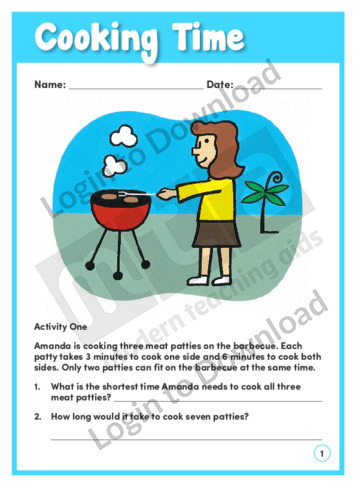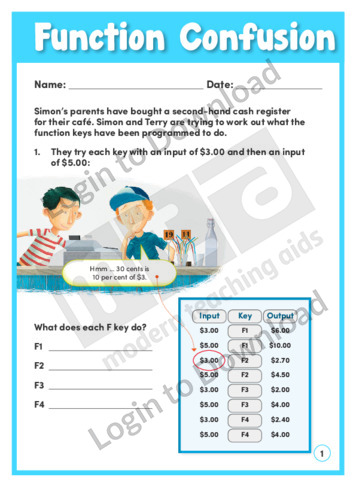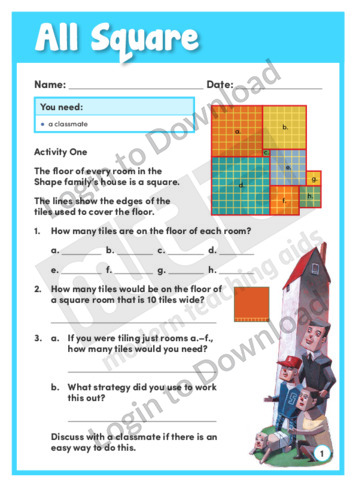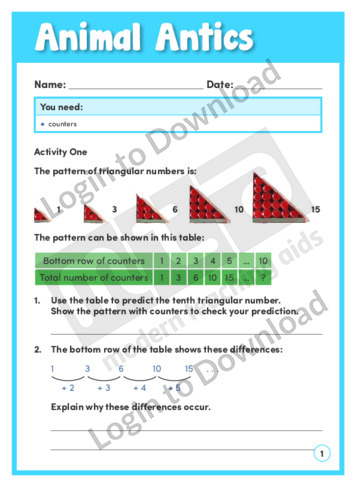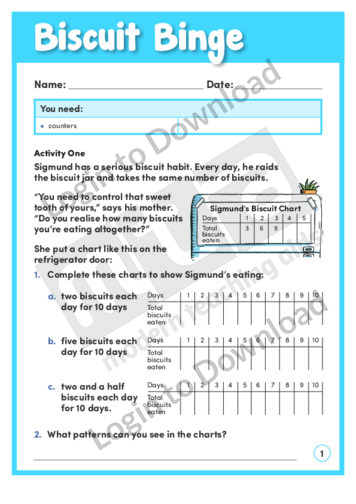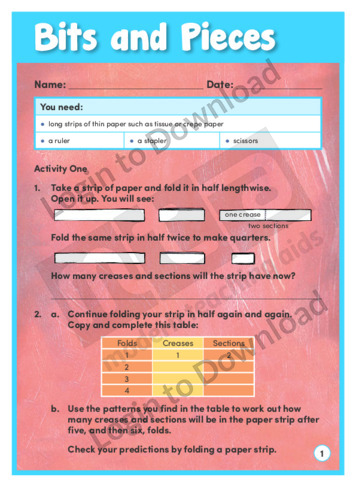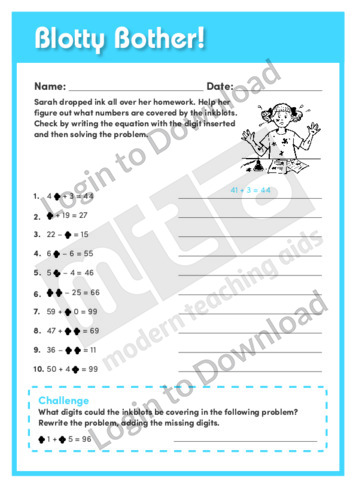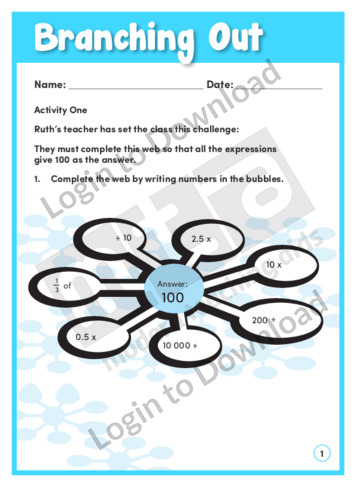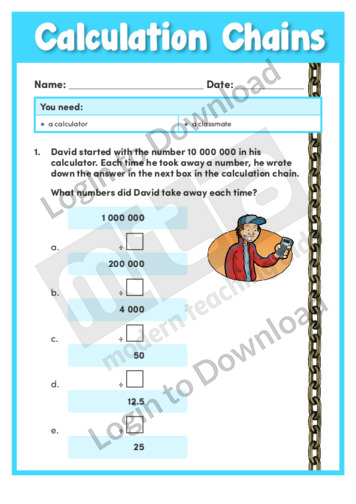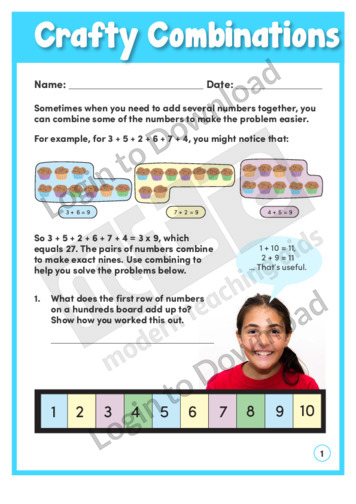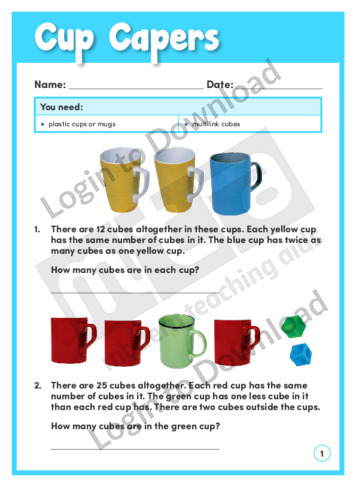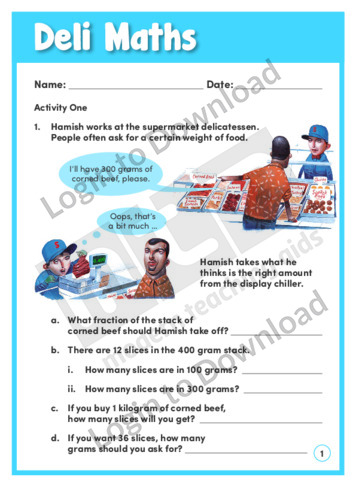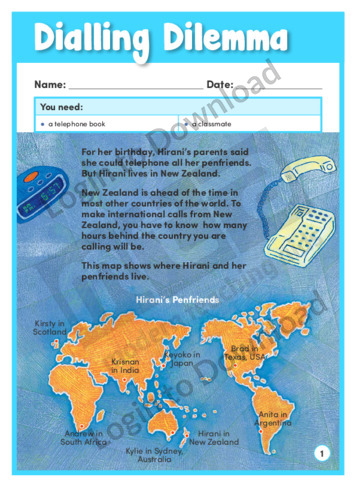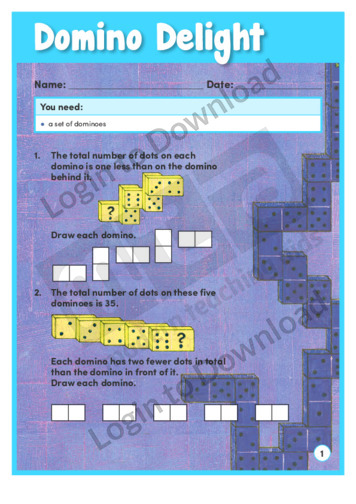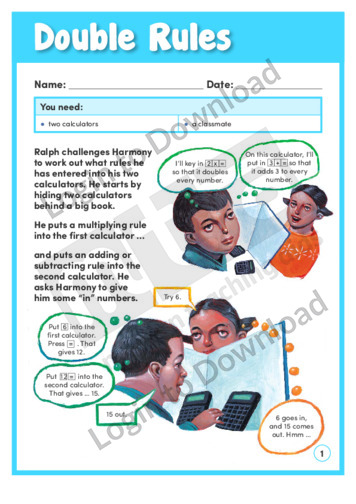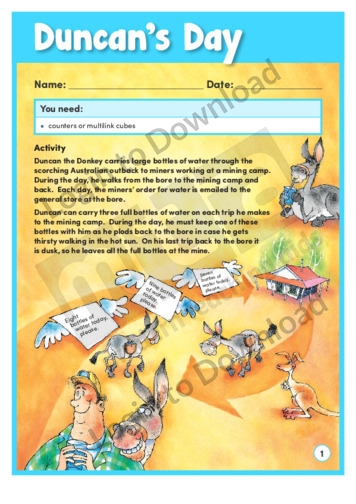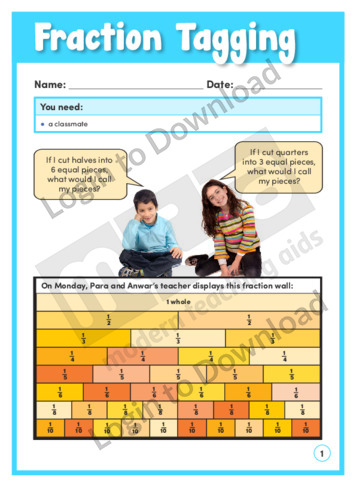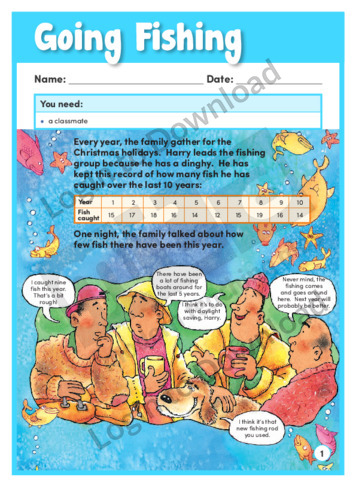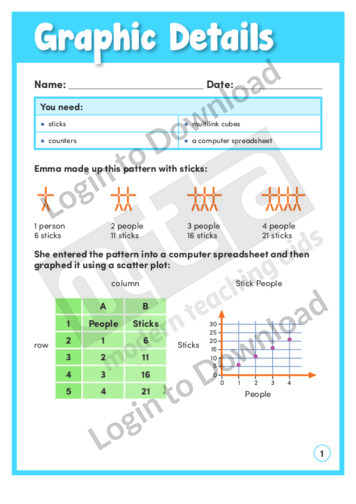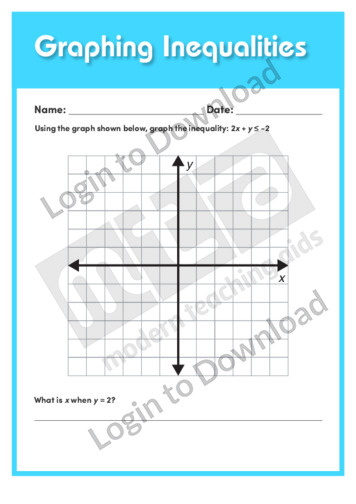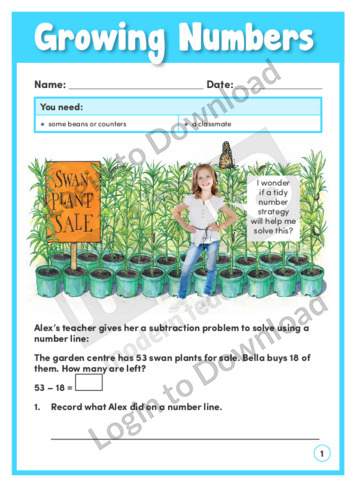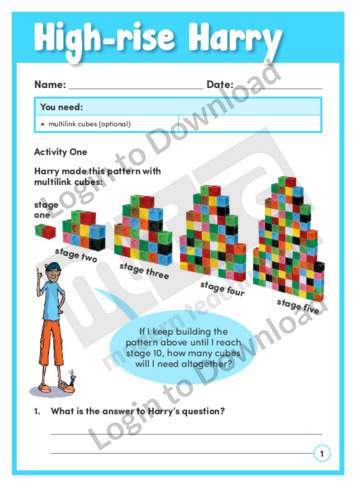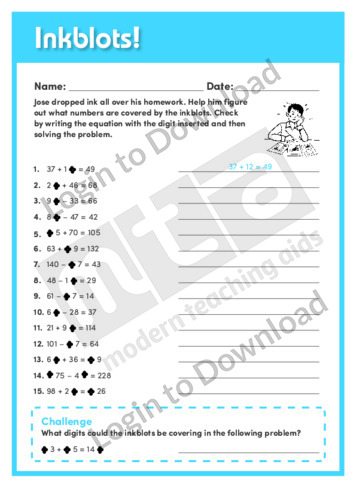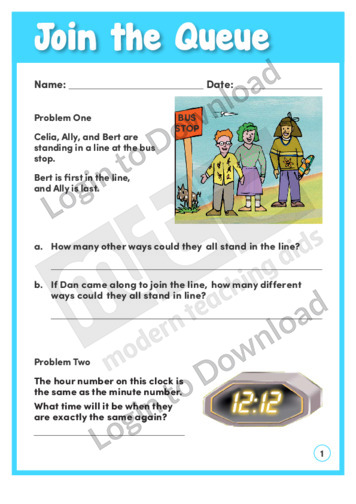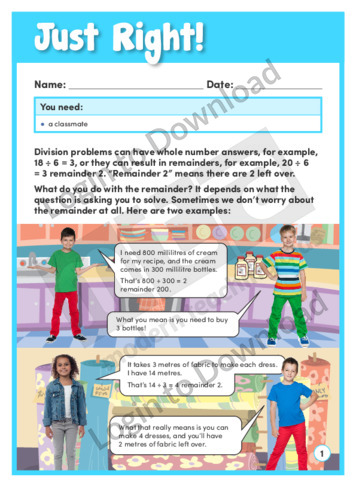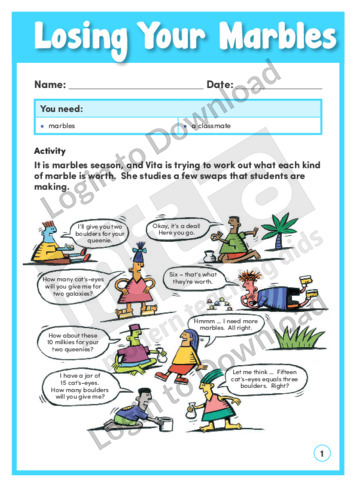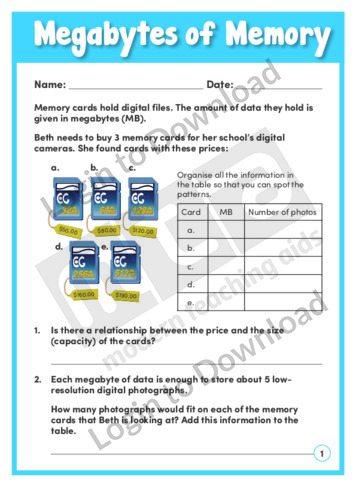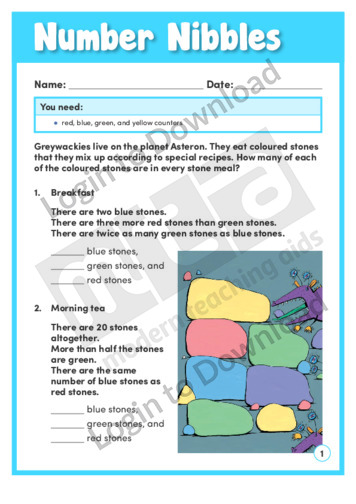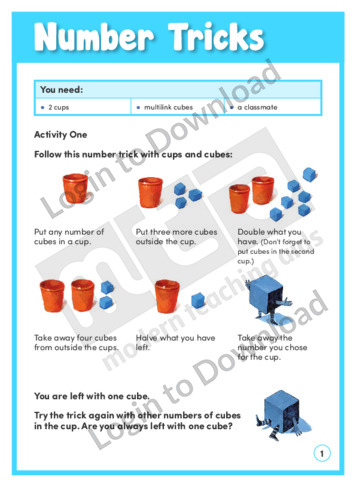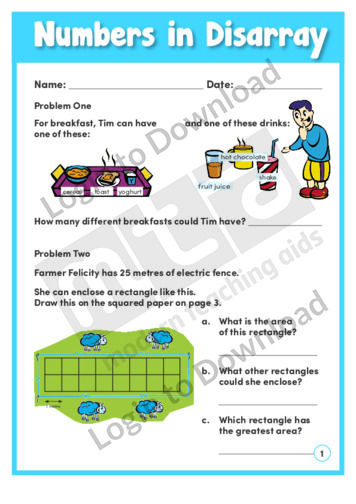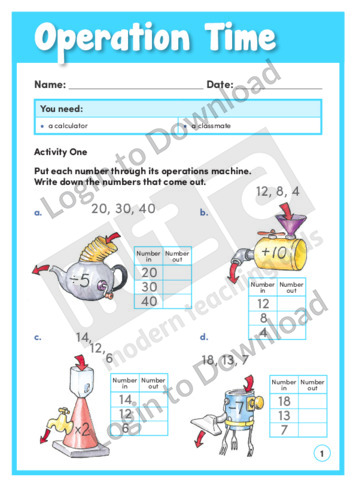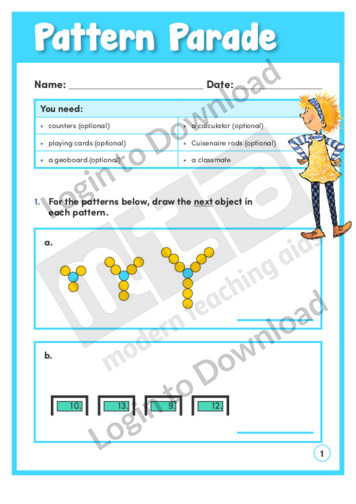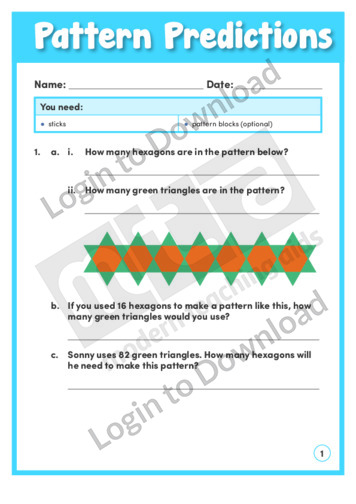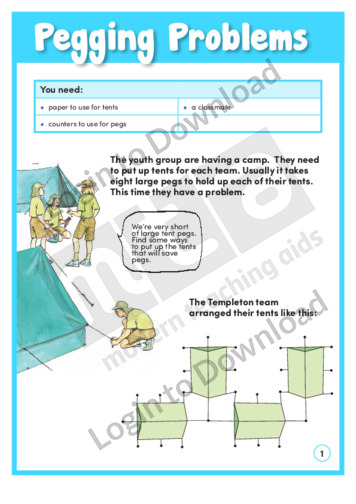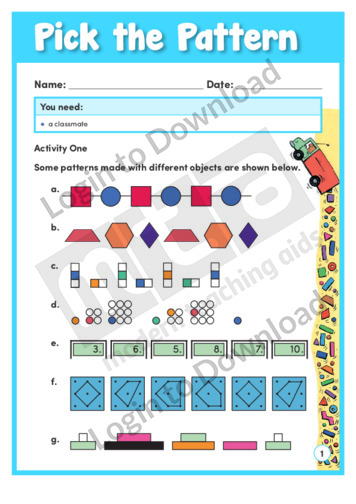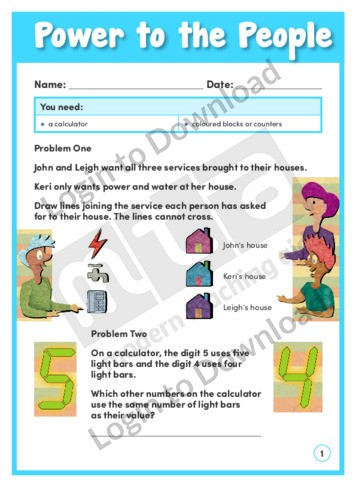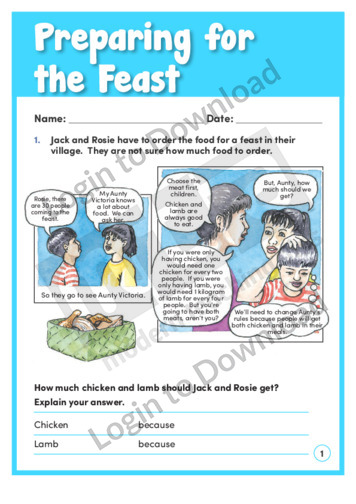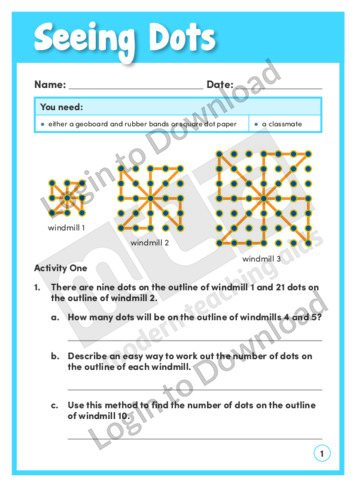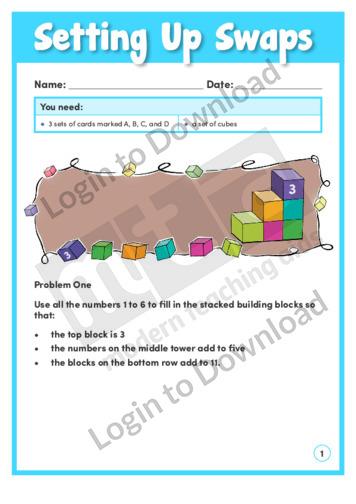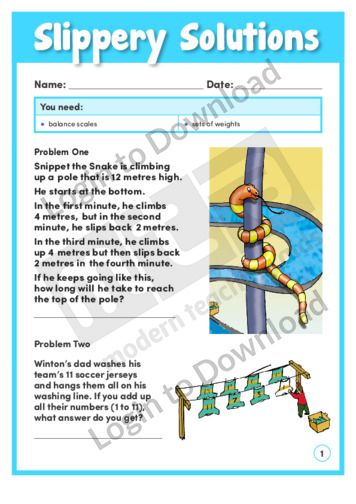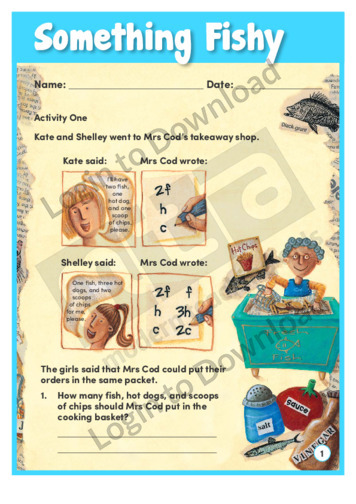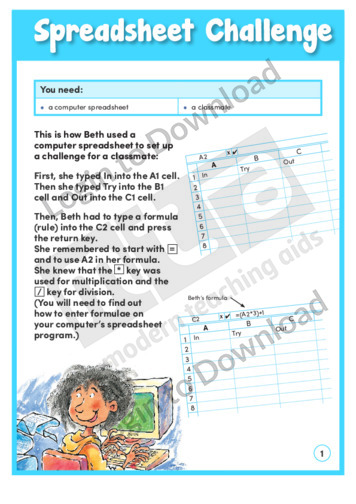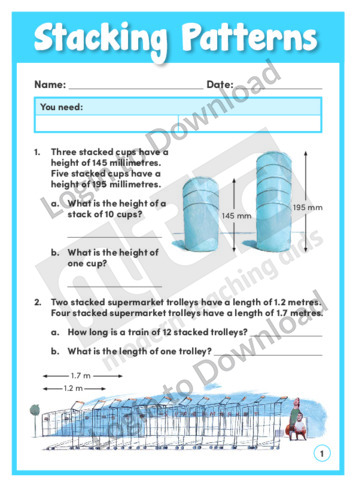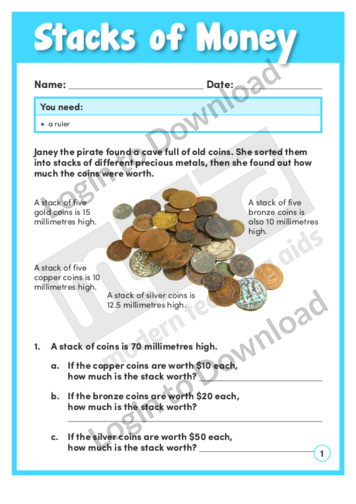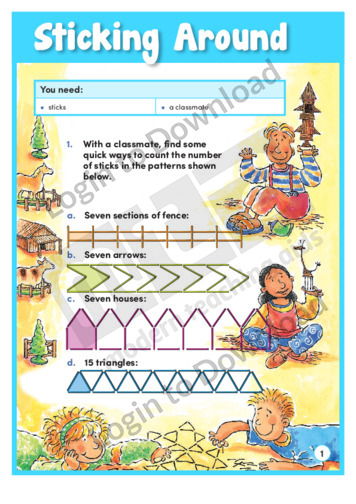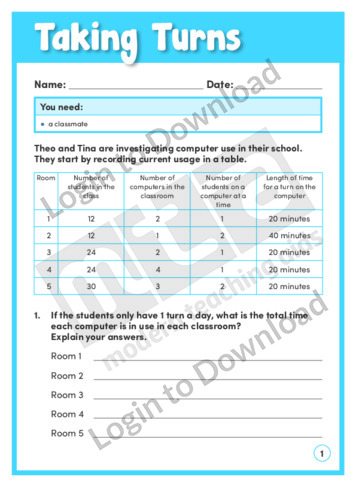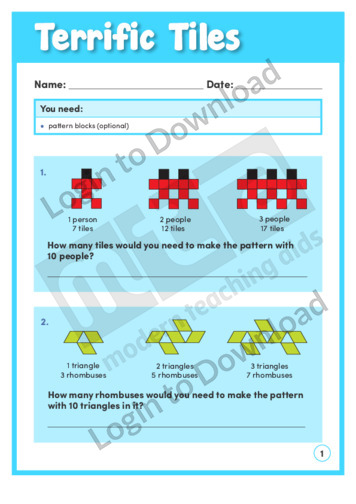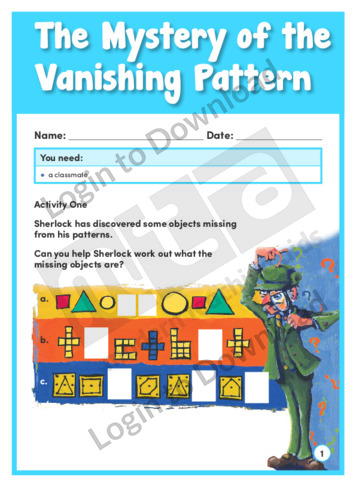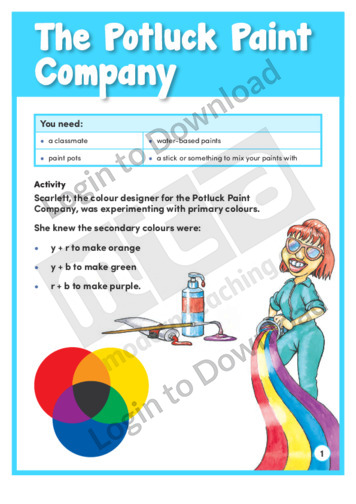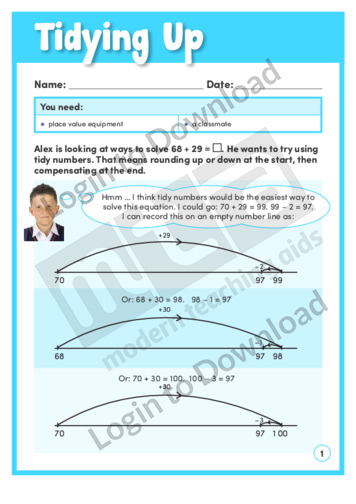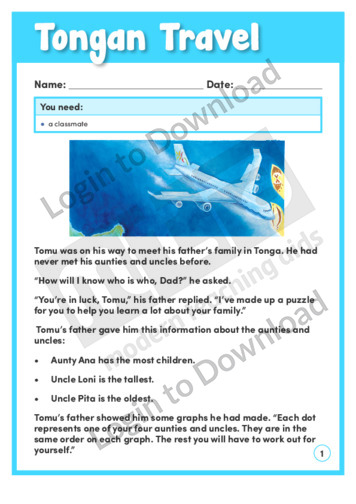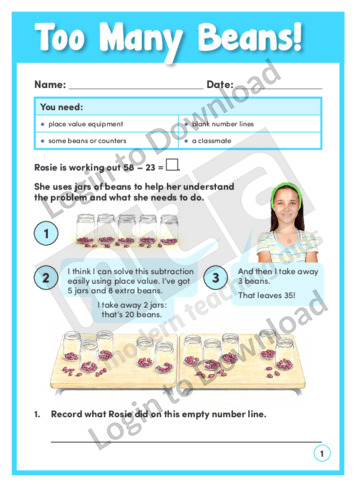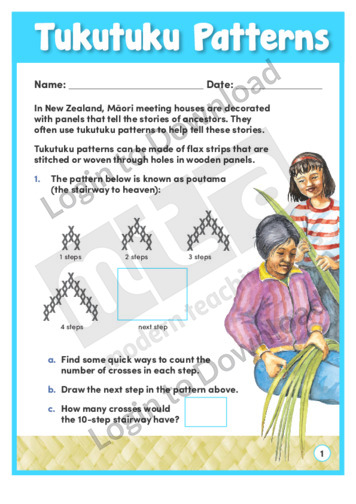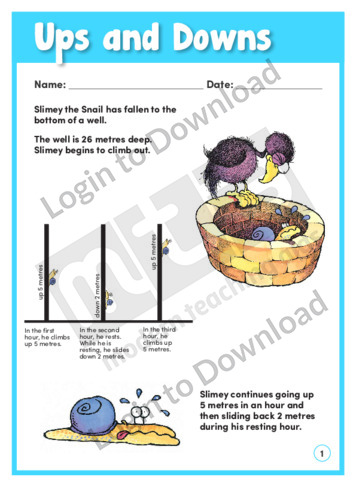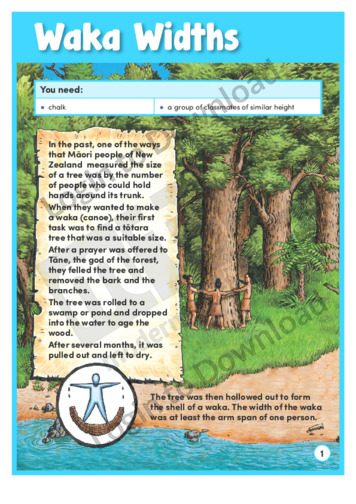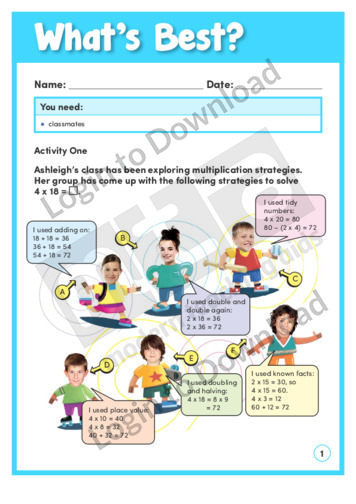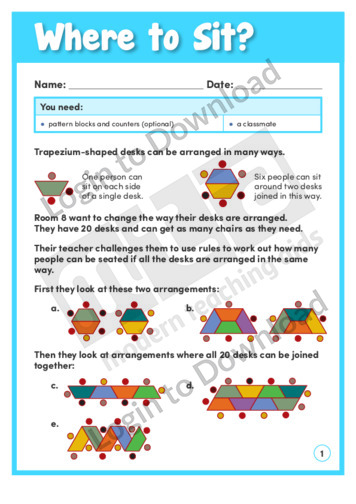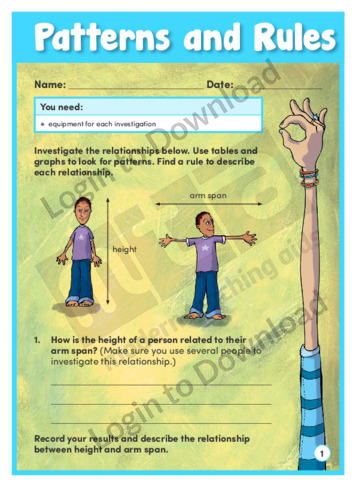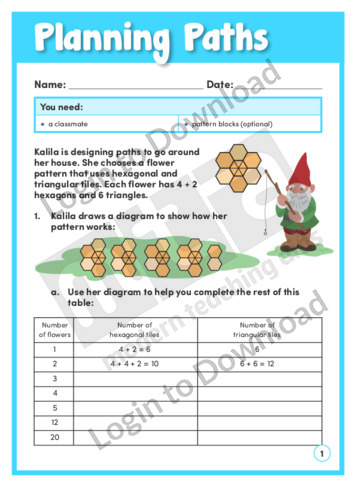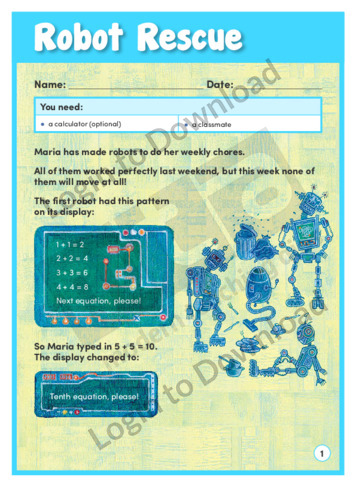In the learning activity, ‘Cooking Time’ students are presented with three different problems that involve cooking. They need to use different time calculations to solve each problem. An answer sheet is provided and includes teaching notes with suggestions for supporting learning and further exploration.
The maths activity, ‘Function Confusion’ provides some practical examples for students explore how they can use their calculators to perform complex operations quickly. This activity includes comprehensive teaching notes to be read before beginning the activity with students, as they feature useful background information and suggestions for supporting learning. The teaching notes explain the importance …More
Using a practical carpet tiling problem the learning activity ‘All Square’ challenges students to find ways of calculating numbers of tiles by using multiplication instead of addition. An answer sheet is provided and includes accompanying teaching notes with suggestions for supporting learning and further exploration.
The learning activity, ‘Animal Antics’ supports the exploration of triangular numbers and their special properties. Using two fun activities, students identify the way triangular number sequences can be formed. An answer sheet is provided and includes accompanying teaching notes with suggestions for supporting learning and further exploration.
Bits and Pieces’ is a learning activity that contains an interesting learning activity. As they identify the sequential patterns of folds and creases in a strip of paper, students are able to explore the sequences found in the pages of books. An answer sheet is provided and includes accompanying teaching notes with suggestions for supporting …More
This algebra worksheet, ‘Blotty Bother!’ asks students to practise with addition and subtraction.
The learning activity, ‘Cup Capers’ challenges students to solve increasingly difficult puzzles based on hiding cubes in cups. As they do so, students explore the relationships between variables and find out how to use this knowledge to solve problems. An answer sheet is provided and includes accompanying teaching notes with suggestions for supporting learning and …More
The learning activity, ‘Deli Maths’ explores the way algebra is used to solve the real problems faced in a deli. As customers order different amounts of meat and other products, students will need to find ways to quickly calculate weights, slices and prices. An answer sheet is provided and includes accompanying teaching notes with suggestions …More
The learning activity, ‘Dialling Dilemma’ poses the real problems encountered when making phone calls across the world. As well as finding out about different time zones, students need to use their knowledge of time-telling and number operations to help Hirani place calls to her penfriends. An answer sheet is provided and includes accompanying teaching notes …More
Domino Delight’ poses problems for students, using patterns of dominoes. Students need to consider both possibilities and constraints as they work out the unknown numbers on covered dominoes and the possible numbers on a domino doughnut. An answer sheet is provided and includes accompanying teaching notes with suggestions for supporting learning and further exploration.
The learning activity, ‘Double Rules’ shows two students playing a game that uses two calculators. Students need to work out the relationships between numbers in order to solve the problems. This find-the-function game is a great learning activity to help students understand number and function relationships. An answer sheet is provided and includes accompanying teaching …More
In the engaging learning activity, ‘Duncan’s Day’ Duncan the donkey carries water to thirsty miners in the Australian outback. Students need to use their knowledge of patterns to develop rules that determine mathematical relationships involved in Duncan’s work. An answer sheet is provided and includes accompanying teaching notes with suggestions for supporting learning and further …More
In the learning activity ‘Fraction Tagging’ a wall with bricks of different sizes is used as a model for demonstrating equivalence between a variety of fractions. Given one value, students need to identify the value of other ‘bricks’ on the wall. After solving problems using four different walls, students create their own fraction wall with …More
The amusing learning activity, ‘Going Fishing’ shows a group of fishermen discussing the reasons they haven’t caught many fish. Students study a graph their results and compare them with the reasons the men give for the variations in their catch. Students then make predictions based on the patterns shown in the graphs. An answer sheet …More
With the learning activity, ‘Graphic Details’ students use graphs and spreadsheets to predict the values of further items in different sets of patterns. They can use materials to support their thinking, but the challenge is to use other methods to solve the problems. An answer sheet is provided and includes accompanying teaching notes with suggestions …More
This patterns and algebra worksheet, ‘Graphing Inequalities’ allows for practice graphing inequalities on a coordinate grid. Answer sheet provided with file download.
In the learning activity ‘Growing Numbers’, students use and compare strategies as they solve word problems that involve addition and subtraction. They are encouraged to compare and share the strategies they use with a classmate as they develop an understanding of the relative benefits of different strategies. An answer sheet is provided and includes accompanying …More
Most students have made buildings from cubes or blocks. The learning activity, ‘High-rise Harry’ shows how Harry built up an intricate pattern of cubes, stage by stage. Students are challenged to identify the general rule Harry used so they can predict the successive stages of his pattern. An answer sheet is provided and includes accompanying …More
This algebra worksheet, ‘Inkblots!’ asks students to practise with addition and subtraction.
The learning activity ‘Join the Queue’ contains a variety of short problems for students to solve and discuss. The problems engage students in thinking about the strategies they can use to solve problems that involve standing in line, using maps, time, and calculator displays. An answer sheet is provided and includes teaching notes to support …More
The engaging learning activity ‘Losing Your Marbles’ shows dialogues in which children exchange different kinds of marbles. Students need to calculate the values of the different marbles by comparing their exchange rates. They are invited to investigate the quirky names and exchange rates for marbles in their own school. An answer sheet is provided and …More
The learning activity ‘Megabytes of Memory’ poses word problems relating to the various memory cards that can be used to store digital photographs. As students complete the learning activity, they use advanced strategies to explore relationships and make choices. An answer sheet is provided and includes accompanying teaching notes with suggestions for supporting learning and …More
This learning activity, ‘Number Nibbles’, describes the diet of coloured stones enjoyed by the Greywackies on planet Asteron. Students need to use number clues to find unknowns. An answer sheet is provided and includes teaching notes with suggestions for supporting learning and further exploration.
The learning activity, ‘Number Tricks’ presents algebraic thinking within a fun game students can play together. The games help develop the students’ ideas about generalised properties of numbers and how they apply to variables. An answer sheet is provided and includes accompanying teaching notes with suggestions for supporting learning and further exploration.
The learning activity ‘Numbers in Disarray’ give students four problems that require different number knowledge and strategies to solve. The engaging problems include making breakfast choices, fencing in sheep, and some number puzzles. An answer sheet is provided and includes teaching notes to support learning and further exploration.
In the learning activity ‘Operation Time’ Simon uses some invented machines to change numbers with a variety of operations. Students are challenged to determine the numbers that come out of or are put into the machines, using their knowledge of number operations. Students are encouraged to discuss their results with a classmate. An answer sheet …More
This learning activity, ‘Pattern Parade’ gives students opportunities to make a variety of sequential patterns. It challenges students to identify rules to replicate and extend patterns. Students are encouraged to discuss their results with a classmate. An answer sheet is provided and includes accompanying teaching notes with suggestions for supporting learning and further exploration.
In the learning activity, ‘Pattern Predictions’, students are challenged to go beyond lengthy counting to find ways of calculating the numbers of shapes in repeating (recursive) patterns that have two elements. An answer sheet is provided and includes accompanying teaching notes with suggestions for supporting learning and further exploration.
The learning activity, ‘Pegging Problems’ can also be used as an engaging hands-on activity. Students use sheets of paper and counters to find out how many pegs are required to secure an increasing number of tents. They identify rules as they discuss their results with a classmate. An answer sheet is provided and includes accompanying …More
This learning activity, ‘Pick the Pattern’, asks students to find the tenth and twentieth objects in various sequential patterns. Students are then prompted to make up their own pattern. An answer sheet is provided and includes teaching notes with suggestions for supporting learning and further exploration.
The learning activity ‘Power to the People’ uses four interesting and very varied problems to encourage students to use their knowledge of operations and strategies. They need to work out how to provide utilities to houses, find patterns in calculator displays, and discover the possible arrangements of colours on flags as they discuss and solve …More
This learning activity, ‘Preparing for The Feast’ shows children helping to order food for a feast in their village. Students need to consider information in the text, apply rules and calculate quantities to make a shopping list. An answer sheet is provided and includes accompanying teaching notes with suggestions for supporting learning and further exploration.
The learning activity, ‘Seeing Dots’ provides students with a fun way to explore sequential patterns, using a dot grid or a geoboard and rubber bands. By changing and scaling, students find rules to help them predict the sizes of extended shapes. An answer sheet is provided and includes accompanying teaching notes with suggestions for supporting …More
The learning activity ‘Setting Up Swaps’ contains a variety of short problems for students to solve and discuss. The problems engage students in thinking about the strategies they can use to solve problems that involve number puzzles, increasing amounts of money, and swapping cards. An answer sheet is provided and includes teaching notes to support …More
The learning activity ‘Slippery Solutions’ provides interesting contexts for students to use number knowledge and strategies. From a pole-climbing snake to friends shaking hands, the problems challenge students to think logically and apply algebraic thinking. An answer sheet is provided and includes teaching notes to support learning and further exploration.
This learning activity, ‘Something Fishy’, features takeaway orders written in code and allows students to practise manipulating symbolic expressions in context. An answer sheet is provided and includes teaching notes with suggestions for supporting learning and further exploration.
The learning activity, ‘Spreadsheet Challenge’ asks students to use a spreadsheet on a computer. They learn to make and work out formulae, using what they know about patterns of numbers. An answer sheet is provided and includes accompanying teaching notes with suggestions for supporting learning and further exploration.
The learning activity, ‘Stacking Patterns’ uses some everyday stacking situations to pose word problems. Students need to identify the rule for continuing a sequential pattern in order to determine the height or length of the stacks. An answer sheet is provided and includes accompanying teaching notes with suggestions for supporting learning and further exploration.
The learning activity, ‘Stacks of Money’ uses the different thickness of coins to pose problems for students to solve. Students explore linear relationships between two variables to answer questions. An answer sheet is provided and includes accompanying teaching notes with suggestions for supporting learning and further exploration.
The learning activity, ‘Sticking Around’ asks students to work with a classmate to find quick ways of counting sticks that form a variety of patterns. They are encouraged to explain the rules in each example, discussing their thinking with a classmate. An answer sheet is provided and includes accompanying teaching notes with suggestions for supporting …More
This learning activity, ‘Terrific Tiles’ can also be used as an engaging hands-on activity. It asks students to use tiles to replicate and expand patterns and then to identify rules for continuing each pattern. An answer sheet is provided and includes accompanying teaching notes with suggestions for supporting learning and further exploration.
In this learning activity, ‘The Mystery of the Vanishing Pattern’, students must help Sherlock find the missing objects in his sequential patterns and then make up their own patterns. An answer sheet is provided and includes teaching notes with suggestions for supporting learning and further exploration.
In this fun hands-on activity, ‘Potluck Paint Company’, students use what they know about colours to determine the results of mixing different colours. They will use algebraic notation to describe the use of primary colours in the new colours they create. An answer sheet is provided and includes accompanying teaching notes with suggestions for supporting …More
In the learning activity ‘Tidying Up’, students use tidy numbers and other strategies as they compare ways to carry out efficient additions and subtractions. The learning activity supports an understanding of when and how the tidy numbers strategy of rounding up or down then compensating can help them to solve equations. An answer sheet is …More
In the learning activity, ‘Tongan Travel’ Tomu’s father gives him clues to help Tomu identify the aunties and uncles he has never met. The learning activity gives students an opportunity to explore the use of graphs that don’t have units of measurement. Instead they need to use clues and graphed relationships to solve problems. An …More
In the learning activity ‘Too Many Beans!’ students use mental or concrete processes to try out different addition and subtraction strategies. They are encouraged to compare and share the strategies they use with a classmate as they develop an understanding of the relative benefits of different strategies. An answer sheet is provided and includes accompanying …More
The learning activity, ‘Tukutuku Patterns’ shows how M?ori in New Zealand weave patterns with flax to tell stories about their history. Students can replicate patterns and create their own, identifying the way elements are repeated and extended in different patterns. An answer sheet is provided and includes accompanying teaching notes with suggestions for supporting learning …More
In this amusing learning activity, ‘Ups and Downs’ students plot the progress of two snails as they climb out of a well. Students use graphs and identify patterns in the snails’ movements. An answer sheet is provided and includes accompanying teaching notes with suggestions for supporting learning and further exploration.
Waka Widths’ is an interesting hands-on activity that uses ancient methods of canoe-making to help student explore the relationship between the diameter and the circumference of a circle using arm spans. An answer sheet is provided and includes accompanying teaching notes with suggestions for supporting learning and further exploration.
What’s Best?’ is a learning activity and learning activity that asks students to consider more than one way of solving number problems. Students compare the strategies they use, explaining why some strategies work better than others, depending on the numbers involved. An answer sheet is provided and includes accompanying teaching notes with suggestions for supporting …More
The learning activity, ‘Where to Sit?’ uses a classroom seating situation to pose word problems. Students need to determine how many people can sit around tables when they are arranged in different ways. An answer sheet is provided and includes accompanying teaching notes with suggestions for supporting learning and further exploration.
The learning activity, ‘Patterns and Rules’ contains several practical learning activities that will help students explore relationships between numbers in everyday situations. Students can select activities and compare their results with classmates. An answer sheet is provided and includes accompanying teaching notes with suggestions for supporting learning and further exploration.
In ‘Planning Paths’, students calculate the numbers of two kinds of tiles needed to build paths of different lengths. The learning activity helps students to explore patterns that have repeated spatial sequences, and to create their own patterns. An answer sheet is provided and includes comprehensive teaching notes for supporting learning and further exploration.
The learning activity, ‘Robot Rescue’ asks students to identify and continue equation patterns. The strategies students use will give a good indication of their ability to describe relationships. An answer sheet is provided and includes accompanying teaching notes with suggestions for supporting learning and further exploration.
It�s that easy!

